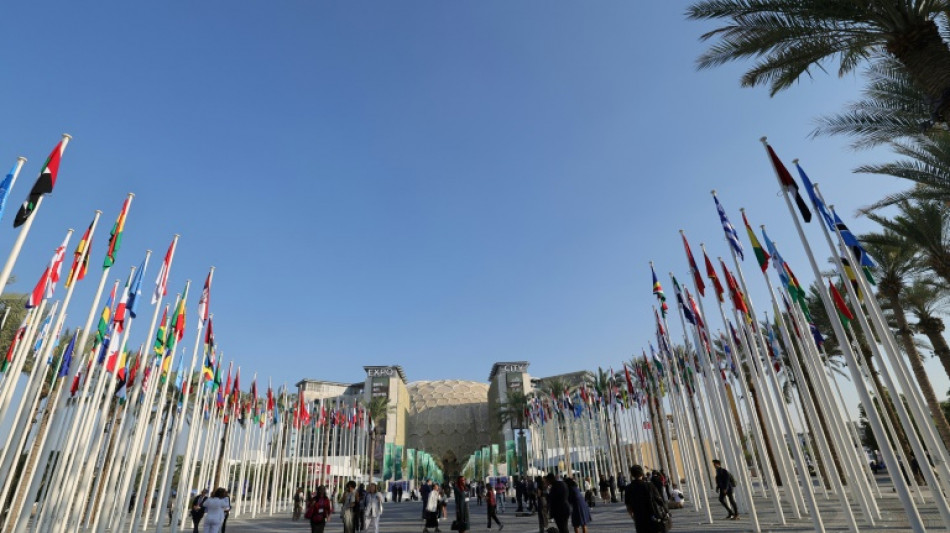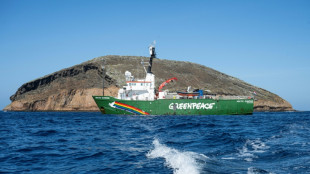

'Not a minute to lose': Clock ticks on fossil fuel deal at climate summit
The UN climate chief on Monday urged an end to obstruction a day before the deadline for a deal at a summit in Dubai, with oil producers resisting historic calls for the world to wind down fossil fuels.
With barely 24 hours before the official close of COP28 in Dubai, negotiators spent a sleepless night trying to find an agreement that can find consensus among all the nearly 200 countries.
Spurred by pleas by low-lying island nations that fear for their very existence, the conference in the glitzy metropolis built by oil money is considering the first-ever call to exit oil, gas and coal, the main culprit in the planet's climate crisis.
"We do not have a minute to lose," Simon Stiell, the head of the UN climate body, told reporters under the morning sun.
Without naming countries, Stiell called for a clearing of "unnecessary tactical blockades" holding up a deal.
"Any strategic landmines that blow it up for one, blow it up for all," Stiell said.
He urged countries to preserve the "highest ambition" to check warming at no more than 1.5 degrees Celsius above pre-industrial levels -- the increasingly elusive goal blessed by the 2015 Paris accord to avoid the worst ravages of climate change including worsening storms and droughts and rising sea levels.
"One thing is for certain: 'I win, you lose' is a recipe for collective failure. Ultimately, it is eight billion people's security that is at stake."
- Down to two issues -
Stiell said that the summit disagreements had narrowed down to two issues -- fossil fuels and speeding up climate finance by the wealthy nations to worst-hit developing countries.
The summit leadership is expected to release a new draft text on Monday.
The annual Conference of the Parties, or COP, has rarely finished on schedule in its 28-year history, but COP28 president Sultan Al Jaber has called on countries to wrap things up on time on Tuesday.
Jaber, the head of the national oil company of the United Arab Emirates, has repeatedly promised to deliver a historic deal and urged countries to find a "consensus and common ground" on fossil fuel.
"Failure is not an option," he said on Sunday.
Saudi Arabia, the world's top oil exporter, has opposed any phase-out or phase-down of fossil fuels and told COP28 that its "perspectives and concerns" must be taken into account.
Iraq has also publicly rejected an exit from fossil fuels.
But veteran climate campaigners and negotiators say the world has never been so close to a deal on winding down oil, gas and coal.
The pressure is now on Jaber -- whose role as oil executive has caused angst among climate campaigners -- to make the final edits to a deal that would bring a consensus.
- China-US cooperation -
The last draft agreement released on Friday includes four different paths out of fossil fuels, but it also has a fifth option: leaving the issue out of the final deal.
China, the world's biggest emitter, was also initially seen as hostile to a phase-out but has since been working to find a compromise.
China and the United States, the largest historic emitter, last month in pre-COP28 talks in California agreed to speed up the deployment of renewable energy to gradually replace oil, gas and coal.
Friday's draft deal includes similar language on the need to triple renewable energy capacity by 2030, to "displace fossil fuel-based energy".
The United States, whose climate envoy John Kerry was celebrating his 80th birthday on Monday during the Dubai negotiations, has surprised some observers by also throwing its weight behind a phase-out.
But the United States also is the world's largest oil producer, and the rival Republican Party includes staunch opponents of curbing fossil fuels.
F.González--ESF




